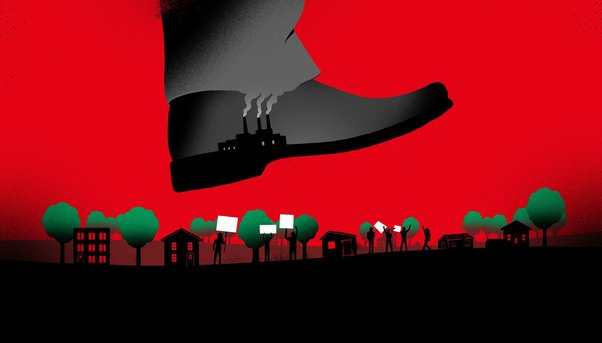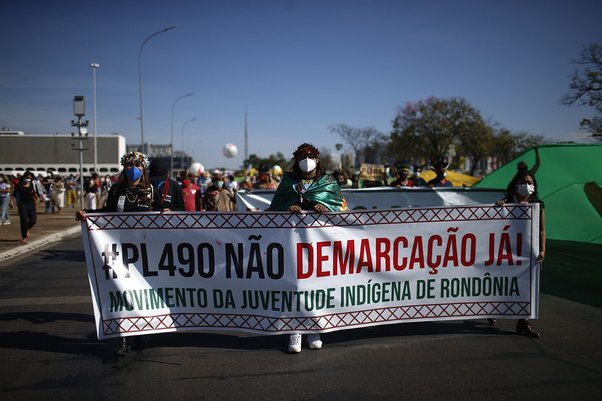Bunge Limited, a global commodity trader headquartered in the United States, is one of the biggest soy players in Brazil’s Cerrado, a vast biodiverse savannah and a vital carbon sink: in 2018, the company exported nearly 16 million tons of soy from the area.
Bunge Limited, a global commodity trader headquartered in the United States, is one of the biggest soy players in Brazil’s Cerrado, a vast biodiverse savannah and a vital carbon sink: in 2018, the company exported nearly 16 million tons of soy from the area.
Yet in the Cerrado, and around the world, Bunge is failing to mitigate or prevent deforestation and human rights abuses by companies in its supply chain. Bunge’s deforestation risk is far higher than any other commodity trader: in Brazil alone, Bunge’s soy operations were linked through its supply chain to deforestation in an area four-fifths the size of Chicago between 2015 and 2018. The company was also linked to 16,942 fire alerts in 2020.
Our new briefing with Friends of the Earth urges Bunge shareholders to support a resolution filed by Green Century Funds and other institutional investors to address the company’s contributions to soy-driven deforestation in the Cerrado.
Download the full briefing
Download ResourceKey Findings
Bunge’s resistance to updating its approach to sustainability, transparency, and human rights carries numerous financial, operational, legal, regulatory, and reputational risks for its shareholders.
- Bunge’s role in driving deforestation and related human rights risks in its soy and palm oil supply chains constitute significant material risk to investors. This is increasingly true as financiers shift to align their investments with their climate, sustainability, and ESG commitments.
- Environmental and social violations, including deforestation, land conflicts, and human rights abuses, can lead to significant operational risks. These include operational delays and the risk of stranded assets.
- Several of Bunge’s suppliers have been linked to illegal activities, opening the company and its investors to legal risks.
- A growing number of regulatory and legislative efforts focused on deforestation, human rights, and mandatory due diligence are being advanced in the US and Europe which highlight increasing regulatory risks to companies and investors.
- Bunge’s role in driving deforestation and related human rights risks opens itself and its shareholders to significant reputational risks as campaigns targeting companies and investors tied to deforestation intensify.
The role of global corporations in driving deforestation and displacing, harassing and criminalising indigenous and marginalized communities came into renewed focus over the past year, as global forest clearances increased sharply and a record number of environmental defenders were murdered.
In November 2020, major corporations including Tesco, Walmart, Unilever and McDonald’s urged Bunge to commit to the ‘Cerrado Manifesto’, asking the company to stop sourcing soy, directly or indirectly, from areas cleared in the Cerrado after 2020. Bunge has failed to make that commitment.
Recommendations
As this briefing makes clear, Bunge needs to consider its impact on people and planet, and the growing evidence of its links to human rights abuses and large-scale deforestation.
Shareholders should vote in favour of Proposal 5 calling on Bunge to issue a report assessing if and how it could increase the scale, pace, and rigor of its efforts to eliminate deforestation in its soy supply chain.
Following this important first step, shareholders should continue to engage with Bunge to ensure the company takes the necessary subsequent steps of developing comprehensive policies and practices to mitigate the risks of deforestation and human rights abuses from its supply chains.
The risks of inaction – for Bunge, for its shareholders and for the planet – are growing.
In a statement to Global Witness, Bunge stated its ‘2025 non-deforestation commitment is industry-leading in terms of its ambition, scale, and progress’ and that the deforestation risks in its supply chain are ‘small and localized’. Bunge stated that it was an active member of several leading industry initiatives to tackle deforestation. It did not make any reference to action the company is taking on human rights abuses in its supply chain.


